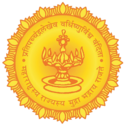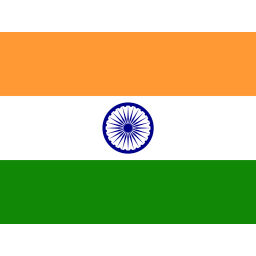Address at the function to mark the completion of nine decades of service to society by the Wadia Hospitals
Address by Shri CH Vidyasagar Rao, Governor of Maharashtra at the function to mark the completion of nine decades of service to society by the Wadia Hospitals at the Hall of Harmony, Nehru Centre, Worli, Mumbai at 1730 hrs on Friday, 15th April 2016
Shri Vinod Tawde, Hon’ble Minister for Education and Medical Education, Shri Arvind Sawant, Hon’ble Member of Parliament, Shri Ram Kadam, Hon’ble Member of the Legislative Assembly, Shri Nusli Wadia, Chairman of Wadia Hospitals, Shri Ness Wadia, Board Member of Wadia Hospitals, Dr Minnie Bodhanawala, CEO, Wadia Hospitals, Medical Directors, Hospital Board Members, Doctors, and paramedical and administrative staff, invitees, ladies and gentlemen,
सर्व प्रथम आपणा सर्वांना राम नवमी व नव वर्षाच्या शुभेच्छा देतो.
I am indeed pleased to associate myself with the celebration of completion of nine decades of healthcare by the Wadia Hospitals.
This is a moment of pride, not just for the Wadia Hospitals, and for all those associated with the institution, it is also a moment of pride for the Government of Maharashtra and for the people whom it has served.
The Nowrosjee Wadia Maternity Hospital, set up in the year 1926, has been offering comprehensive healthcare to women from all sections of society, while the Bai Jerbai Wadia Hospital for Children, which was India’s first hospital for child care, has been providing paediatric care for all these years.
Both these Hospitals are pioneering super speciality hospitals in Mumbai and stand as a legacy of the philanthropy of the Wadia family.
The Wadia Hospitals have rendered matchless contribution to society by reducing Maternal, Neonatal and Infant Mortality rate and by producing well trained Pediatricians and Gynecologists for the country.
I have come here to tell you that Maharashtra is proud of the Wadia Hospitals, for what you have done, and are still doing, for the poor and the underprivileged sections of society.
Ladies and gentlemen,
As a newcomer to the city of Mumbai – I took charge as Governor on 30th August 2014 – I was always curious to know, how the city of Mumbai evolved into the financial capital of India, and who contributed to the development and growth of the city.
I was amazed to know, it was the Wadia family – which was in the shipbuilding business in the early 18th Century – which, alongwith others, laid the foundations for the economic transformation of the city of Mumbai.
The Wadias have not only contributed to the economic development of the city, but through institutions like the Wadia Hospitals and the Wadia College in Pune, also contributed to the social development of the State.
I take this opportunity to convey my whole-hearted appreciation to Shri Nusli Wadia and the Wadia family.
Ladies and gentlemen,
Many of the government and municipal hospitals in Mumbai were created in the Pre- Independence era, when the population of Mumbai was much less, than what it is today.
For instance, when the Sir J J Hospital was created, in the year 1845, the population of Mumbai was less than 10 lakhs !
In the early 20th century, when Hospitals like Nair, KEM and Wadia Hospitals were established, the population of the city was still around 20 lakh.
Today the population of Greater Mumbai has crossed 15 million. We therefore need to strengthen and upgrade all our existing public hospitals and charitable hospitals – including the Wadia Hospitals. We also need to reserve more beds for the poor in the private and corporate hospitals.
As Governor, I have a special responsibility in respect of the administration in the Scheduled Areas of the State. The Scheduled Areas in simple words are villages having large tribal population. My responsibility often takes me to some of the remotest tribal areas in the State. I find that a large gap exists between the availability of healthcare in urban areas and tribal areas. We need to strengthen primary health centres in vllages and district hospitals to improve the quality of healthcare in rural areas.
I was surprised to know that even in a progressive state like Maharashtra, there is incidence of malnutrition in certain pockets.
It was gratifying to note that the doctors from the Wadia Hospitals are assisting the government in tackling malnutrition and conducting outreach programmes in rural areas. I am also pleased to learn that doctors from Wadia are rendering service in the drought affected areas of Marathwada.
Ladies and gentlemen,
The Government is pursuing the Swasth Bharat mission, aimed at providing affordable health services to all, and immunization of children, to bring down the mortality rate to single digit.
I believe that woman-centred healthcare is extremely important to achieve this goal. One of the Millennium Development Goals to which India is committed is, reducing maternal mortality and achieving universal access to reproductive health care. I am very happy that the Government of Maharashtra has taken various initiatives to reduce maternal mortality. However, we still have a long way to go, in achieving the rates comparable to developed countries.
Women need more high-quality nutrients when they are pregnant or nursing. However for various reasons, including poverty and age-old beliefs, women typically eat last and least. More than half of all Indian women develop anemia due to lack of essential nutrients. Lack of nutrition of the mother adversely affects the physical and mental well being of the child. We need multi-dimensional solution to tackle this problem.
Delivery is a rebirth for a woman. I do feel that a woman should have the right to deliver in a hospital of her choice. The government should compensate the hospital the delivery charges.
As Chancellor of Universities including the University of Health Sciences, I am deeply worried by the declining standards of medical education in our country. In a discipline like Medicine, it is not enough for doctors to acquire bookish knowledge. They must acquire clinical experience to improve their patient examination skills.
Since the Wadia Hospitals are teaching hospitals, I will appeal to the Hospital authorities to produce a good number of doctors and specialists for the nation. I will also ask the Hospitals to constantly work on improving the skills of working doctors through organization of Continuing Medical Education programmes.
Today India is known in the world as an IT super power. However we have not been able to harness the power of technology to offer healthcare to the rural masses through Tele medicine to the extent desired. This is one area where we can certainly do much more.
Ladies and gentlemen,
As the youngest nation in the world with an average age of 29 years, India will be called upon to play a leading role in offering quality healthcare not only within the country, but also in the developed countries where the populations are rapidly aging. India must produce more quality doctors, specialists and paramedicos to provide healthcare to the world.
I have great expectations from the Wadia Hospitals, and I will ask the Hospital authorities to think of opening Nursing Colleges, one in Mumbai and the other in a tribal area.
I am very happy that postal stamps commemorating the legacy of the Wadia Hospitals are being brought out today.
I congratulate the Wadia Hospitals on the momentous occasion of completion of nine decades of service to society and convey my appreciation to the Wadia family for their continued support to the institution. We need more philanthropists like the Wadias in the city and in the country at large. I wish the Wadia Hospitals, the CEO and her entire team, Godspeed in their future endeavours.
Thank you
Jai Hind ! Jai Maharashtra !!





